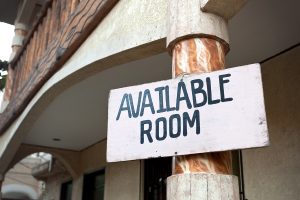Are you increasing your chances being evicted by renting your home to short-term tenants from places like Airbnb?
If you a tenant and you are not following your lease, you could be making it easy for the landlord to evict you.
A game changer
The vote by the San Francisco Board of Supervisors on June 7th could be a game changer if you’re a tenant and you rent out part of your home as a short-term occupancy without registering.
The Board, frustrated over the many unregistered hosts who rent through companies like Airbnb, passed legislation that fine these companies $1,000 a day if the hosts do not follow the San Francisco Code on Short-Term Rentals.
Mayor Ed Lee could veto the bill, although the 10-0 vote by the Board means his veto would be overturned.
Airbnb’s response
Airbnb cried foul, but in recent days it looks like the company has decided to use its political power to help make the registration process easier for San Francisco hosts.
According to NBC News, the Airbnb’s Director of Global Affairs stated that registering your home for short-term tenancy “makes going to the DMV the equivalent of a walk in the park. For the average person, it takes 30 days to do it.” He further noted that the registration process was “burdensome.”
As an attorney, I never advocate that someone disobey the law because it’s burdensome.
Going the legal route
Furthermore, registering your short-term tenancy is more like a business license than a driving license. And whether they change the law or not to make it easier for hosts to register, it’s likely much of the information they want now will still be required.
Here the requirements the City wants now. In order to apply, you need:
- A completed Short-Term Residential Rental Application, which is available online;
- A Business Registration Certificate issued by the San Francisco Business Portal;
- Driver’s License or State Issued ID Card with the address of the unit you wish to register
- Proof of liability insurance in the amount of no less than $500,000;
- A signed affidavit agreeing to abide by all conditions of the short-term residential rental ordinance included within the application;
- A $50.00 check made out to the San Francisco Planning Department;
- At least two of the following documents to confirm your primary residency at your residential unit:
-Proof of a Homeowner’s Tax Exemption. Accepted as a form of residency confirmation only if the proof of a Homeowner’s Tax Exemption is for a property that is either a single-family dwelling or condominium;
-Voter Registration Card or Certificate with the address of the unit you wish to register. You may obtain a copy through the San Francisco Department of Elections;
-Proof of Vehicle Registration with the address of the unit you wish to register;
-Original proof of car insurance with the address of the unit you wish to register (no copies or printouts);
-Original utility bill, issued by either SFPUC (Water/Sewer), Recology/Sunset Scavenger (Waste/Recycling), or Pacific Gas & Electric, including the payment stub showing the address of the unit you wish to register.
As you can clearly see, it’s not easy to register. Not many people carry $500,000 of liability insurance or are willing to pay for that amount of insurance.
Protecting against horror stories
Why is the City so interested in proof that you live there? For the simple reason that you might be willing to rent out your home to complete strangers—a lot of them—as long as you aren’t there yourself.
After hearing of about numerous horror stories, NBC News investigated one short-term rental in San Francisco this past May. They rented a bunk bed in an apartment on 9th Avenue for $42 per night. The 3-bedroom apartment had 14 beds packed into it, with no sign that the host lived there. If it was full every night, the host could have made $17,000 a month.
Of course it wasn’t registered with the City.
Imagine that you lived next door to such a place. People coming and going each night. The noise. The commotion of strangers who don’t live in the building. And even more worrisome, the possible fire hazards.
Risky business
It’s precisely because of these annoyance and stress factors that other tenants will report you if they discover you are renting your home illegally through short-term rental companies like Airbnb. Even if you’re just doing it occasionally, it’s easy to spot a strangers going in and out of your apartment over a period of time, especially ones with rollaway suitcases and big cameras.
Most leases do not permit subletting, so if you do short-term rentals, you are violating a provision in your lease and are opening yourself up to a possible eviction.
If it subletting is not allowed in your lease, you should forget about applying for registration with the City. Since you’re a tenant, the people at the Office of Short-Term Rental Registry will ask for a copy of your lease. They will then send a notification to your landlord letting him know that you have applied.
Did you get yourself into trouble?
Have you gotten notice you’re being evicted because of subletting? Or are you worried that your landlord is going to give you notice? This may be a time to consider your options. You should consider seeking the help of an experienced tenant attorney to learn about your tenant rights.
Know your rights. Protect yourself.


 (415) 533-0735
(415) 533-0735 (415) 843-0496
(415) 843-0496